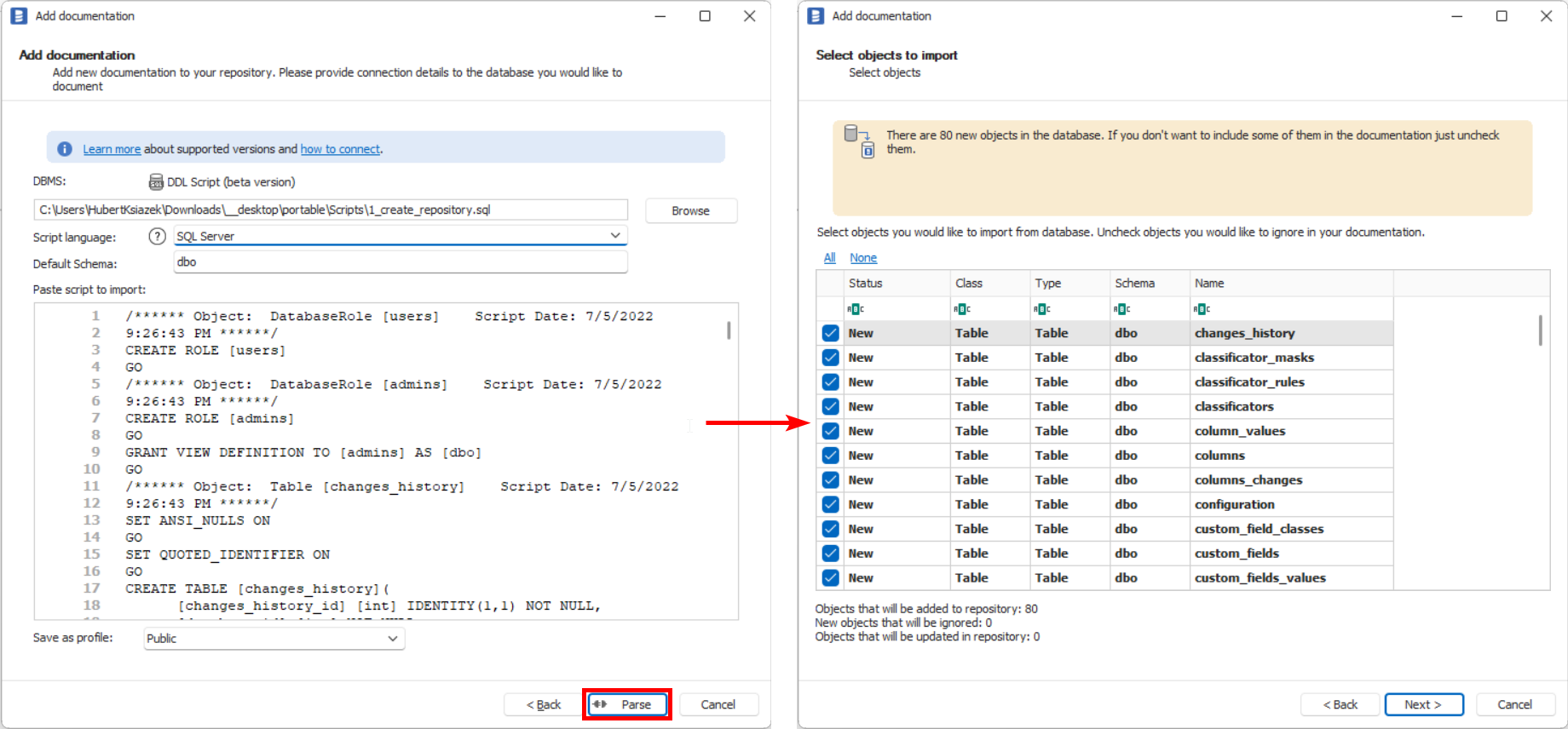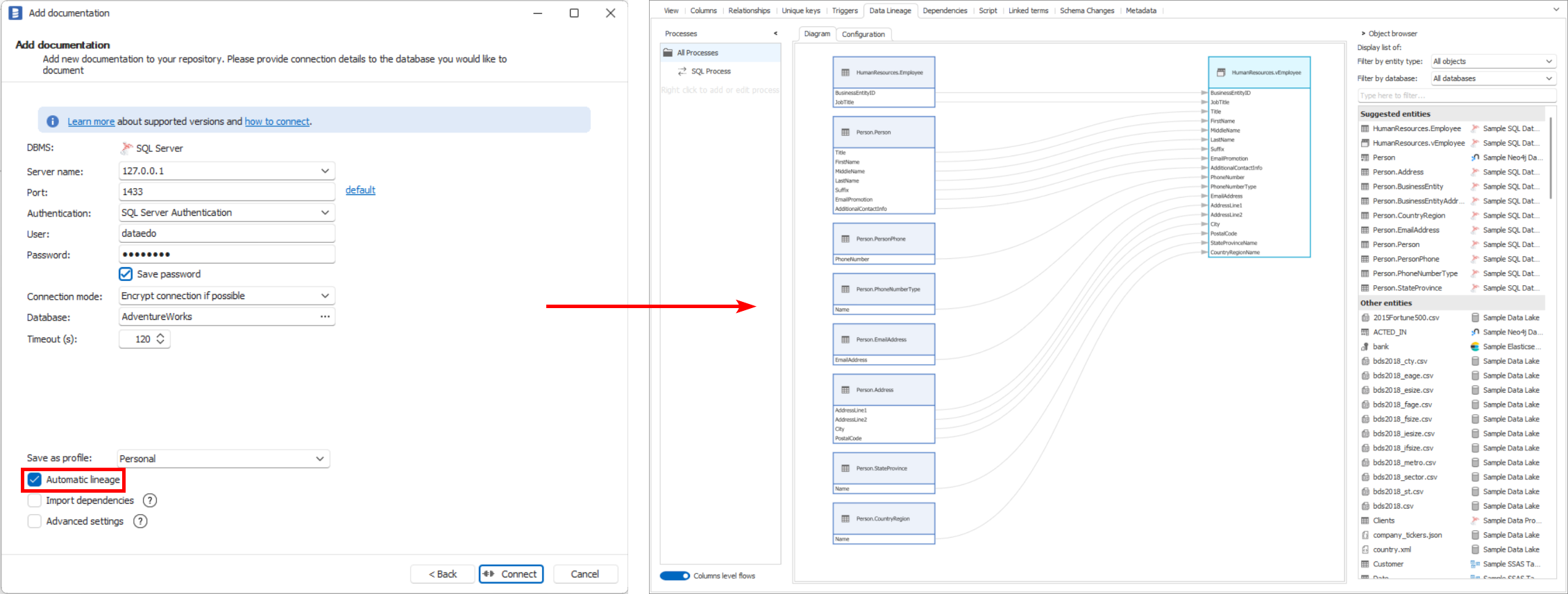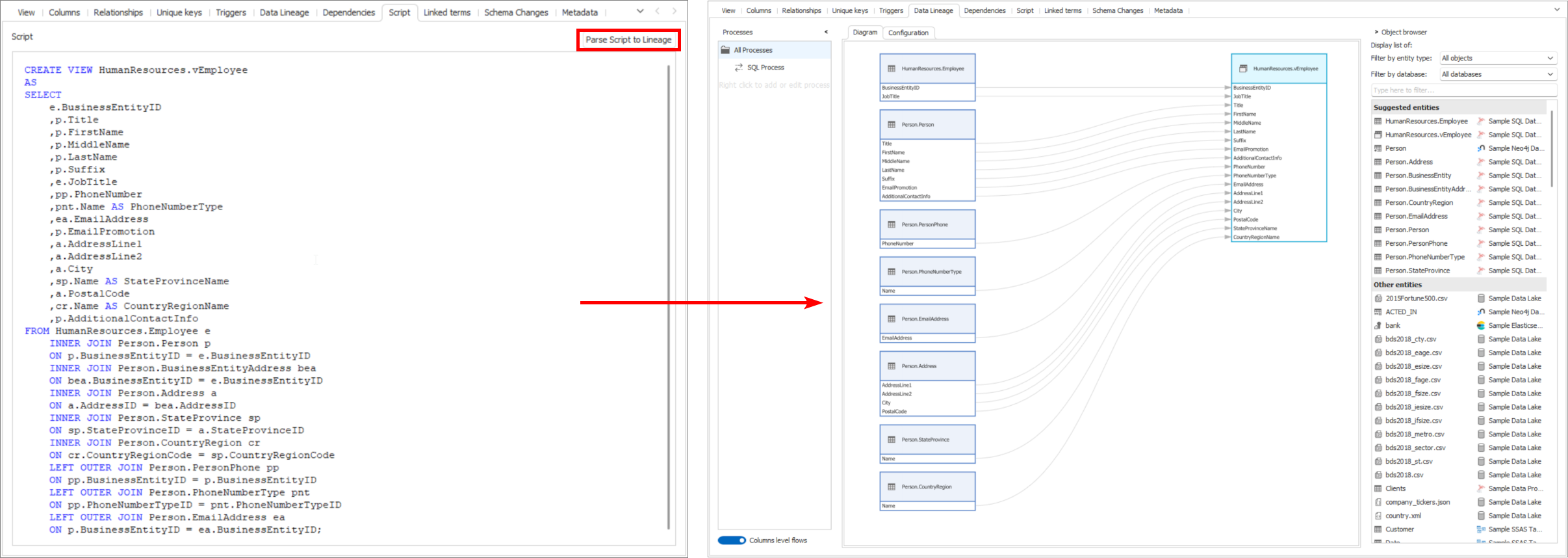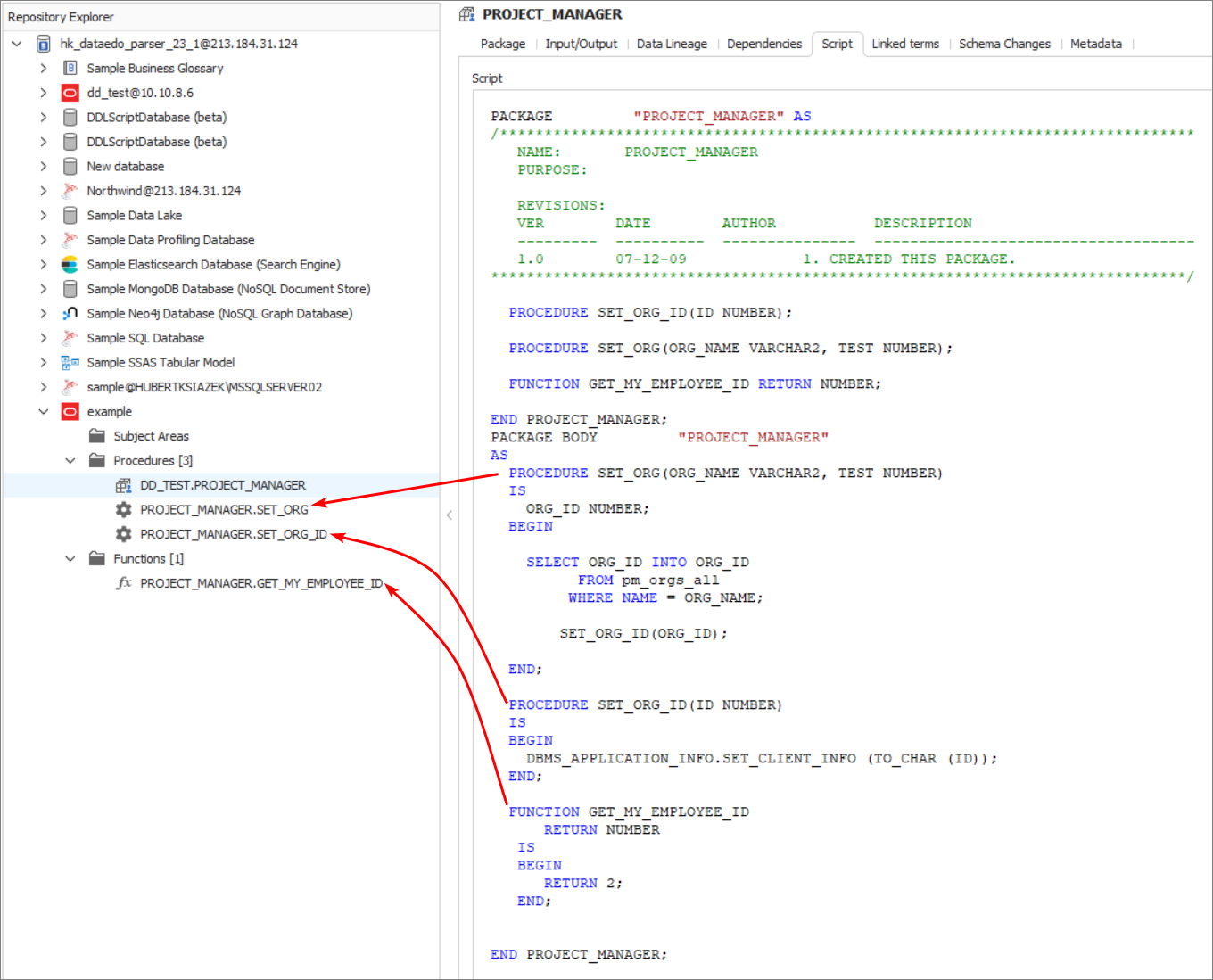A SQL parser is a tool that reads SQL code and converts it into a format that can be understood and processed by a computer. The parser is an important component of any metadata management system like Dataedo as it allows them to analyze SQL queries and fetch the relevant metadata.
This documentation will provide you with information on where the Dataedo SQL parser is used.
Import schema from DDL
Data Definition Language (DDL) is a subset of SQL that is used to describe database structure and relationships in a database. With the help of an SQL Parser, Dataedo imports the schema based on the given DDL. Read more.

Supported dialects
This function is available in the following dialects:
Automatic column-level lineage from SELECT/CREATE VIEW statements
Dataedo will create column-level data lineage for views and SQL queries based on the script. Just leave the "Automatic lineage" option selected during import.

If you disable this feature during import, you will still be able to trigger the automated creation of column-level lineage through the "Parse Script to Lineage" functionality, which is located in the Script tab.

This function also works for manually added views that were created using a script, as well as for SQL Query objects.
Supported dialects
This function is available in the following dialects:
- MySQL (incl. MariaDB)
- PostgreSQL (inc. Redshift)
- PL/SQL (Oracle)
- Transact-SQL (SQL Server/Azure SQL/Azure Synapse)
- Snowflake SQL (Snowflake)
Supported SQL syntax
We support the creation of an automatic lineage in all dialects for the following SQL syntax:
SELECTandCREATE VIEWstatements,- Aliases,
- Functions and operators,
- UNIONs,
- JOINs,
- Subqueries and nested queries,
- CASEs and other logic-related expressions,
- Not Recursive Common Table Expressions (CTE).
If any dialect supports additional SQL syntax there will be information about it on its subpage.
We do not support the creation of an automatic lineage for the following SQL syntax:
- Statements that access nested data such JSON, XML, or objects as columns
PIVOTandUNPIVOTrelational operators,- Recursive Common Table Expressions (Recursive CTE),
- Dynamic queries,
- Window functions.
Automatic column-level lineage from imported Stored Procedures
Dataedo will create column-level data lineage for stored procedures based on the script. Just leave the "Automatic lineage" option selected during import or doing import changes, it is not possible yet to parse a single procedure or manual script beyond the mentioned operations.
Dataedo will divide the procedure into steps and represent them as processes, then create a data lineage for supported steps. Unsupported steps will be named after the first word from the process script and end with three dots.

In the script tab, the processes contain fragments of the procedure script to which they refer.

Supported dialects
This function is available in the following dialects:
We are working on support for data lineage from stored procedures for other dialects.
Supported SQL syntax
We support the creation of an automatic lineage in all dialects for the following SQL statements:
SELECT INTO,INSERT(without inserting constant values),UPDATE(without updating to constant values),CREATE TABLE AS SELECT.
When temporary tables are created in a procedure (ones that do not normally exist in the documented database), Dataedo will try to combine the lineage that goes into them with the lineage that comes out of them, i.e. instead of SOURCE_TABLE -> #TEMP_TABLE -> DESTINATION_TABLE, will represent it as SOURCE_TABLE -> DESTINATION_TABLE.
Regrettably, due to the nature of ANTLR, the presence of unsupported elements within a procedure may result in the entire procedure being unable to be parsed. In the current stage, we treat procedures incorporating elements beyond those explicitly outlined as unsupported. Nevertheless, we do our best to make sure that the unsupported elements do not affect supported steps.
We do not support the creation of an automatic lineage for the following SQL syntax:
- Common Table Expressions (
WITHstatements), - variables and parameters,
MERGEstatements,OUTPUTstatements,INSERT VALUES,UPDATEwhen constants are set,DELETEstatements,BULK INSERTstatements,COPY INTOstatements,- syntax mentioned as unsupported in
SELECT/CREATE VIEWchapter.
Extract information from PL/SQL packages
We use our SQL parser to break PL/SQL packages into individual objects - functions and stored procedures with parameters and scripts.

Additional information
Parser timeout
In Local user settings you can set the maximum time how much parsing one script can take. If it is exceeded, the parsing of this script will be automatically canceled.












 Hubert Książek
Hubert Książek